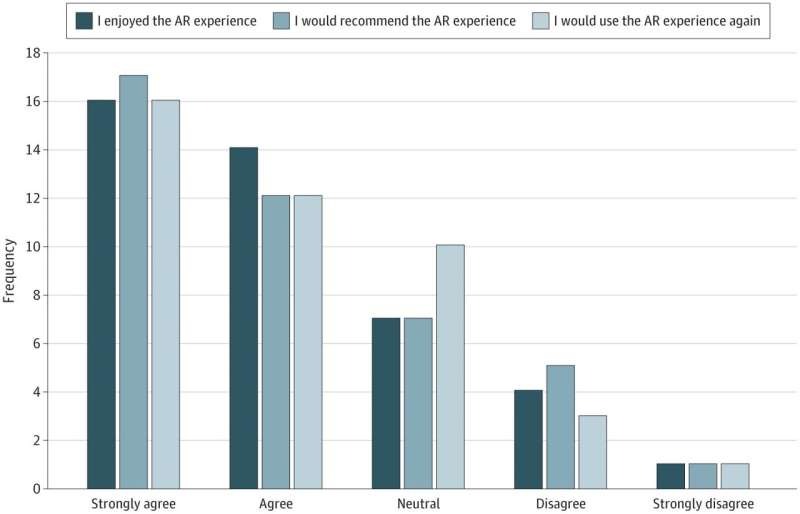Published on
Updated
Reading 2 mins.
Using augmented reality software may help reduce the stress and anxiety many patients feel before surgery, according to a study published in the journal JAMA Network Open.
Many patients admit to feeling stressed or anxious as they approach surgery. This apprehension is explained by the fear of being “open” but also by the fear of the unknown. Indeed, when you have to undergo surgery, you don’t know what will happen in detail, unless you are a surgeon!
To help these patients approach their operation more calmly, scientists have worked on ways to reduce their stress. Virtual reality has already proven to be a promising tool for reducing anxiety before a medical procedure. A study published in the journal JAMA Network Open last February demonstrated the effectiveness of virtual reality headsets in distracting children frightened by syringes. Indeed, the children who participated in the study had reported significantly less pain – immediately after the sting – and less anxiety.
Overlay digital content on the world around us
In this new study, researchers looked at another less passive method than virtual reality: augmented reality. This involves layering additional content onto the world around you. Concretely, augmented reality offers digital content that complements what you see, thanks to special glasses or the camera of your phone or tablet.
In the case of a surgical operation, augmented reality consists of providing the patient with additional information about the operation he is about to undergo, within the very environment where he is going to be operated on. The objective is to reassure him by explaining to him what he will experience on the operating table.
A virtual staging of the upcoming operation
To assess the effects of augmented reality on the stress and anxiety of patients before an operation, the researchers asked 95 patients undergoing orthopedic surgery to test an augmented reality experience before their operation. The volunteers were divided into two groups. The first group benefited from the classic instructions and information given by the surgeon before an operation. The second group received standard pre-operative instructions and were immersed in a three-minute augmented reality experience, narrated by the surgeon in charge of their operation.
All participants were asked about their feelings four times during the study: twice before surgery and twice after surgery. Researchers found that patients in the augmented reality group reported lower levels of anxiety and stress than patients who did not receive the augmented reality experience.

This study shows that augmented reality could be a useful tool to reduce preoperative stress and anxiety experienced by a large number of patients. However, the authors of this work point out that additional research must be carried out to verify the effectiveness of this method on a larger scale.
